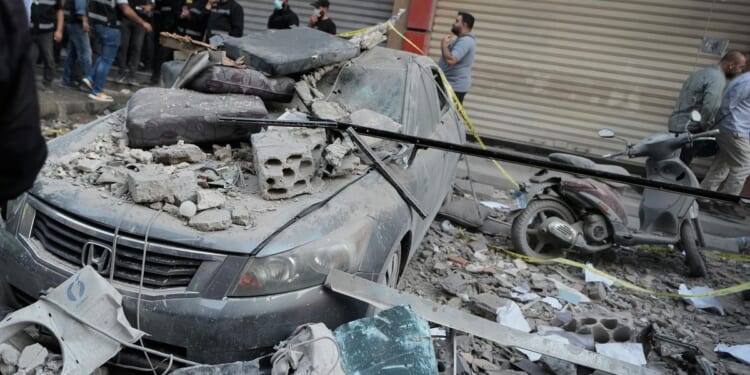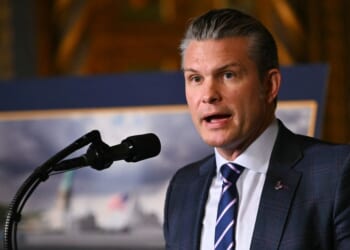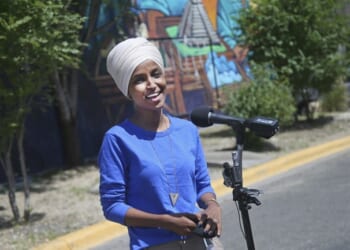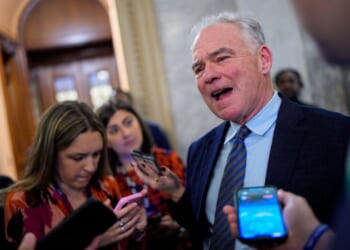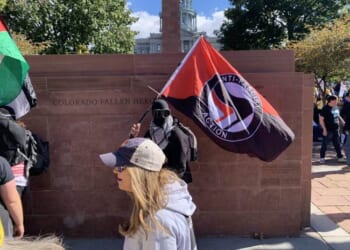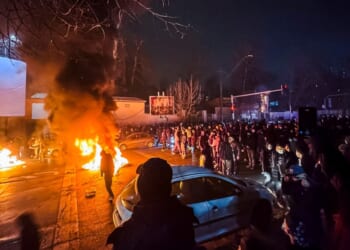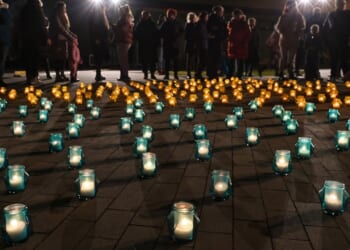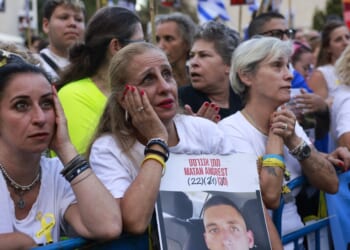
BEIRUT — Lebanon’s prime minister criticized Hezbollah on Thursday for failing to disarm, saying that its refusal to do so is hurting the Lebanese people at a time when the country is trying to recover from the group’s war with Israel last year.
In new violence, Israel carried out another round of airstrikes on suspected Hezbollah sites in southern Lebanon.
Israel and Hezbollah reached a ceasefire a year ago, ending months of heavy fighting. But Israel continues to occupy parts of southern Lebanon, and has stepped up airstrikes while accusing Hezbollah of trying to rebuild its arsenal.
At the same time, Israel has pushed forward on a number of other fronts, including a new offensive in the West Bank and continued firefights in Gaza. Ongoing conflicts in the region have fueled concerns that unrest could spill over and undermine the fragile truce in Gaza.
Israel’s air force carried out another series of strikes in parts of southern Lebanon on Thursday. The military said it struck and dismantled Hezbollah infrastructure, including launch sites storing Hezbollah weapons.
Its strikes escalated earlier this week with a rare strike in Lebanon’s capital of Beirut, killing Hezbollah’s chief of staff.
PHOTOS: Lebanese leader criticizes Hezbollah for not disarming
On Thursday, Lebanese Prime Minister Nawaf Salam said Hezbollah’s arms have failed to deter Israeli airstrikes, protect the Lebanese people or even safeguard the lives of its own leaders.
“Hezbollah says its weapons are deterring an aggression. Deterrence means preventing the enemy from carrying out an aggression, but it (Israel) is attacking and the weapons are not deterring it,” Salam said in comments run by state-run National News Agency.
Salam’s rare criticism of the group comes as the United States and Israel have increasingly pressured Lebanon’s government to disarm the militant group.
The Israeli strikes come days before Pope Leo XIV is scheduled to visit the country, where he will meet the crisis-hit nation’s political and religious leaders. Although the pope will visit Beirut and other parts of the country, he will not go to south Lebanon, which suffered wide destruction during the 14-month Israel-Hezbollah war.
In the northeastern West Bank region of Tubas, Israel’s military has detained at least 119 people in an offensive that began on Tuesday, according to a Palestinian advocacy group.
Abdullah al-Zaghari, spokesman for the Palestinian Prisoners’ Club, told The Associated Press that the authorities released 27 of those detained, and accused the military of severely beating a number of people.
The military did not immediately comment on reports of mass arrests or beatings, but has said the operation was a response to “attempts to establish terrorist strongholds and construction of terror infrastructures in the area.”
Tubas Gov. Ahmad Al-Asaad said Israel had carried out airstrikes with military helicopters, and that the region was essentially “cut off” by Israeli troops.
Israel launched a broad offensive in the West Bank following Hamas’ Oct. 7, 2023, attack that triggered the war in Gaza. It says it is cracking down on militants, though Palestinian health officials and human rights groups say dozens of uninvolved civilians have been harmed. On Nov. 19, Palestinian attackers stabbed an Israeli to death and wounded three more before being shot down by troops.
The latest operation comes amid a rising tide of Israeli settler violence in the West Bank.
Israeli leaders have played down the settler attacks as the work of a small minority. But Palestinians say the attacks are frequent, often in close proximity to Israeli troops, and the settlers are rarely punished.
___
Janetsky reported from Jerusalem.

